From leading boycotts, establishing new political parties, staging “pee-in” protests, and advising executive branch officials, Black leaders throughout history have used bold, creative strategies to fight poverty and drive monumental change.
Their work remains unfinished. In the face of renewed threats–including massive spending cuts and work reporting requirements for public benefits programs, today’s leaders are building on the work of these trailblazers as they defend anti-poverty programs and push for economic justice. This Black History Month, we celebrate a few movement leaders whose legacies continue to shape the fight against poverty.
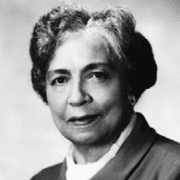
Dr. Dorothy Boulding Ferebee (1898-1980)
A trailblazing physician, public health advocate, and champion of reproductive justice, Dr. Dorothy Boulding Ferebee provided critical health care services to Black communities from Washington D.C to the Mississippi Delta. As president of Alpha Kappa Alpha Sorority, Inc., she used her platform to address maternal and child health disparities. Her legacy inspired organizers in the Mississippi Delta who were among the first to establish Community Health Centers, which expanded healthcare access for millions.
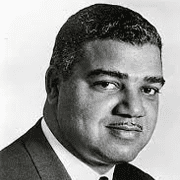
Whitney M. Young Jr. (1921-1971)
Whitney M. Young Jr.’s work and leadership focused on economic empowerment. As executive director of the National Urban League, he expanded the organization’s reach, securing job training and placement programs for job-seekers. Young strategically worked with business leaders and policymakers, advocating for federal funding to support the War on Poverty. His ability to bridge grassroots activism and institutional change made him a key figure in addressing economic inequality and opening doors for Black Americans.
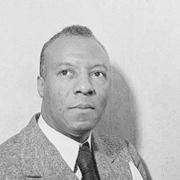
A . Phillip Randolph (1889-1979)
A. Philip Randolph was a visionary labor leader who transformed the fight against poverty. He founded the Brotherhood of Sleeping Car Porters, the first African-American-led union to secure a collective bargaining agreement, uplifting economic security for thousands of Black workers. Randolph’s organizing efforts, including the 1941 March on Washington Movement, pressured President Roosevelt to ban discrimination in defense industries. His leadership demonstrated the power of collective action in tackling systemic poverty and racial discrimination.
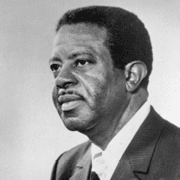
Ralph Abernathy (1926-1990)
Ralph Abernathy, a close ally of Dr. Martin Luther King Jr., was a pivotal leader in the fight against poverty through the Poor People’s Campaign. After Dr. King’s assassination, Abernathy led efforts to unite poor Americans across racial lines, advocating for economic justice and federal anti-poverty programs. He spearheaded the construction of Resurrection City, a protest encampment on the National Mall in 1968, symbolizing the urgency for systemic change. Abernathy’s commitment to coalition building and direct action highlighted the connections between civil rights and economic equality.

Florynce Kennedy (1916-2000)
“Don’t agonize, organize.”
Florence “Flo” Kennedy was a groundbreaking lawyer and activist known for bold protests for reproductive justice. Kennedy led a “pee-in” at Harvard University to demand more women’s restrooms and organized “share-outs” to amplify personal stories, building support for abortion rights. She strategically linked reproductive freedom with racial and gender justice, founding the Feminist Party to amplify these issues politically. Kennedy challenged systemic oppression with creativity, wit, humor, and unapologetic defiance.
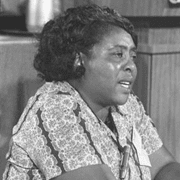
Fannie Lou Hamer (1917-1977)
Fannie Lou Hamer was a tireless grassroots advocate for civil rights and economic justice. In 1969, she co-founded the Freedom Farm Cooperative, which purchased over 600 acres of land to help Black families grow their own food and build economic independence. Hamer also launched initiatives like the Pig Bank, which provided livestock to impoverished families and worked to secure federal funds for programs like Head Start. Her approach– that combined mutual aid, land ownership, and community-driven solutions–remains a model for fighting poverty through community power.
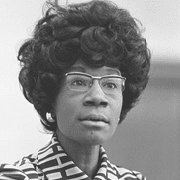
Shirley Chisholm (1924-2005)
Shirley Chisholm, the first Black woman elected to Congress, championed economic security for communities like her native Bedford-Stuveyesant, New York. Throughout her seven-term tenure, Chisholm advocated for the federal support of anti-poverty and education programs. She also used her platform to highlight how restrictive abortion laws disproportionately affected poor women of color, framing reproductive rights as essential to racial and economic justice.
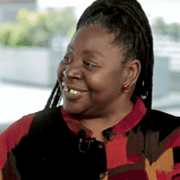
Loretta Ross (1953- Present)
Loretta J. Ross is a pioneering Black feminist and human rights activist who significantly advanced reproductive justice. In 1994, as part of the “Women of African Descent for Reproductive Justice,” Ross and her comrades developed “reproductive justice” as a framework to encompass the societal and economic realities that impact the reproductive practices of Black women beyond the pro-choice campaign of the times. Ross co-founded SisterSong Women of Color Reproductive Justice Collective in 1997, where her coalition building shone through as she united diverse organizations to advocate for reproductive health.
